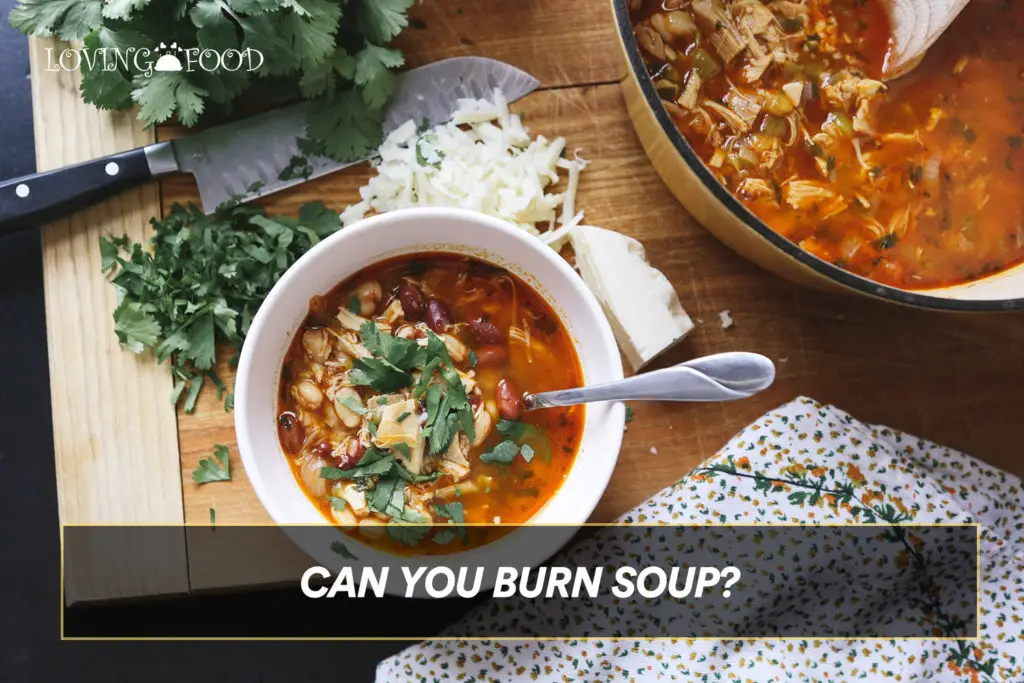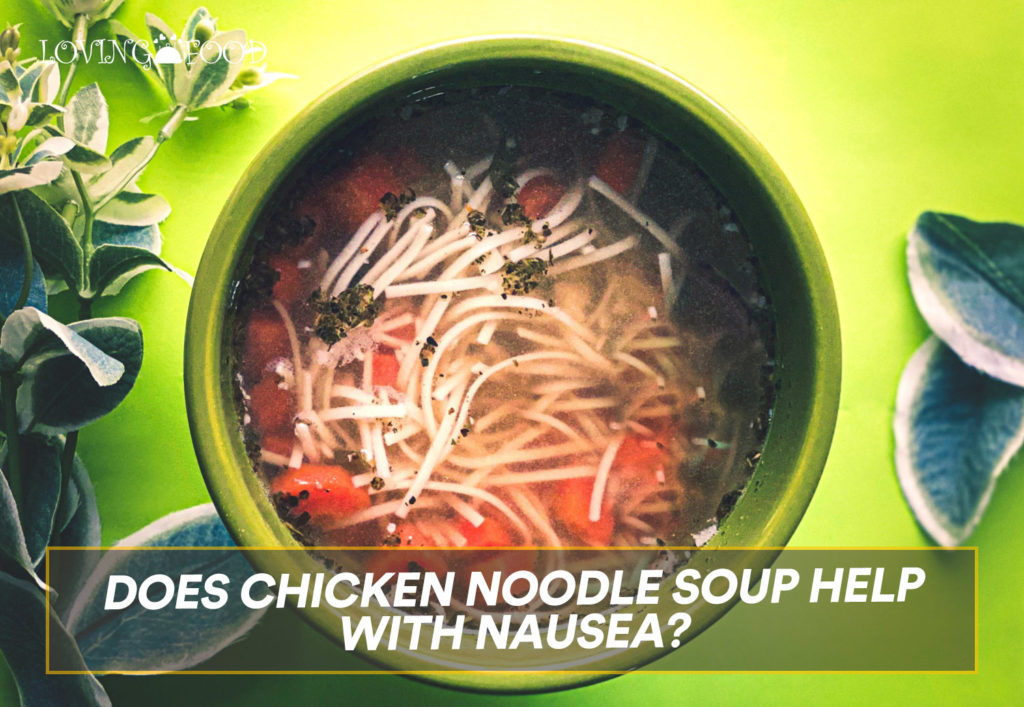While everyone knows that solid food can burn, some people wonder if soup might burn as well. This is because, in comparison to other foods, soup has a high liquid content and is hence unlikely to burn.
Yes, you can burn soup. Although soups have a high liquid content, they also contain solids such as vegetables, meat, or fish that could stick to pots and get burnt. In severe cases, burnt soup can burst into flames if the liquid content is completely dried up.
Are there preventive measures against burning soup? Can burnt soup be fixed? This article explains what causes burnt soup, what to do if your soup burns, how to prevent burnt soup, and how to deal with burnt pots and odors in your home.
Everything you need to know about dealing with burnt soup is right here.
Is It Possible to Burn Soup?
Yes, you can burn soup. If the soup is cooked on high heat and the solids stick to the pot, it is likely to get burnt.
Several factors can contribute to your getting burnt. Some of them include using a low-quality pot without nonstick coatings, mismatching liquid-solid content, not stirring properly, cooking on high heat, and negligence.
What to do When Soup Burns?
The following suggestions can help you figure out what to do if your soup burns:
- Turn off the heat source right away to avoid more scorching and to give yourself a chance to start over with your soup.
- Determine the extent to which the soup got burnt. This helps determine if the soup can be salvaged to give it a fresh start or if it needs to be discarded.
- Don’t stir the soup; turning or scraping burnt bits off the bottom can make the whole dish taste burnt.
- Pour the soup directly into a clean pot without scraping the burnt bit; this helps curtail the spread and transfer of burnt bits into the new pot. Your soup will have a better chance of preserving its original flavor and aroma if you use a new pot.
- Taste the soup to check for burnt bit or taste. If the soup does not taste burnt, continue with meal preparation.
If your soup has a burnt flavor or aroma, we have included some solutions that may help mask it.
These solutions will help you get rid of the burnt flavor in your soup. However, this depends on if the remedies are suitable for your soup. You are advised to use a remedy that would complement rather than alter the original flavor and texture of your soup.
- Remove any burned bits from the soup if they are discovered.
- To absorb the flavor, add a raw, clean potato. Set the soup aside for about 15 minutes then taste again.
- Add a spoon of cinnamon to your soup. Note that this should be added in little bits so it does not overshadow the original flavor of the soup.
- Peanut butter or soy sauce is also known to counteract the burnt flavor in your soup.
- Adding extra spices and seasoning can mask the burnt flavor in your soup.
- Vinegar, white wine, or lime juice can be added to the soup but this depends on your kind of soup.
How to Prevent Soup From Burning?
These tips would prevent your soup from burning. They include:
- Make sure you’re using high-quality pots and pans. Use cookware with nonstick coatings; soup does not burn as easily in nonstick-coated pots. For low-quality pots and pans, a heat diffuser can be used.
- Before adding your soup mix, preheat the oil in your pot or pan. The oil acts as a nonstick layer.
- Make sure your burner is the right size for your pot or pan. When you use an undersized burner for your pot, flames might lick the sides of the pot, causing solids and liquids to stick and burn.
- Ensure the soup has sufficient liquid.
- Cook your soup on low heat for a few minutes before increasing to medium. Soup burns easily when cooked on high heat.
- Stir your soup constantly to keep solids from sticking to the bottom of the pot. It also helps distribute heat evenly; if soup solids stay in one spot for too long, it is likely to burn.
- Don’t forget to keep an eye on your soup. If you are easily distracted, alarm clocks can be useful.
Tips on Dealing With Burnt Soup
- Deglaze your burnt pots by pouring cold water and vinegar, then place the pot on low heat. Afterward, add 2 tablespoons of baking soda and leave to soak for 15 minutes. This helps loosen burnt bits in the pot.
- Boiling lemons in a burnt pot can help remove burnt and caked debris.
- Use aluminum foil to scrub burnt pots. This method cannot be applied to nonstick pots as it would scratch the coating.
- Keep a fire extinguisher in your kitchen at all times. If the liquid in the soup evaporates, the pot may burst into flames causing damage to life and property.
- To get rid of the burnt smell in your home, open all the windows and let the air flow. Turning on fans also helps.
- If the burnt smell is heavy in your house, place a bowl of onions in the affected area. Onions can help absorb the burnt smell.
- Spritz your kitchen and home with lemon water.
Frequently Asked Questions
Can I fix burnt soup?
Yes, you can fix burnt soup if only a minor part got burnt. To salvage burnt soup, avoid scrapping of burnt bit alongside the unaffected part. Simply pour the unaffected part into a new pot and continue cooking.
Is it okay to eat burnt soup?
No, it is not okay to eat burnt soup. Eating burnt soup would deprive you of the healthy nutrients contained in the soup. In addition, the burnt soup has an unpleasant flavor and aroma. It is best to discard burnt soup if it cannot be salvaged.
Final Note
Every kind of cooked food can get burnt, even soups. In the same vein, anyone can burn soup, even chefs.
However, better preparatory measures can reduce the risk of you burning your tasty soup to the barest minimum. To lessen the chances of burning your next pot of soup, follow the guidelines we’ve provided.








